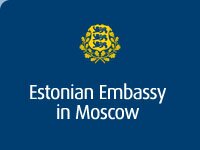Foreign Minister Urmas Paet: Well-Being of Estonian Economy is Most Closely Tied to Nordic Countries
02.03.2012
No. 53-E
At the economic conference "An Estonian and Finnish Economic Union?" held in Tallinn today, Foreign Minister Urmas Paet spoke about Estonia's foreign economic policy priorities as they relate to the Nordic countries, the European Union internal market, and free trade, as well as wider global opportunities. Finnish Minister of European Affairs and Trade Relations Alexander Stubb also spoke at the conference.
When speaking about economic co-operation with the Nordic countries, Foreign Minister Paet noted that the EU's Baltic Sea region is one of the most dynamic and successful regions in the world, while also being stable. "Our countries are in good shape in terms of economy and finances, as well as politics and society. The Nordic countries value the same liberal economic model as Estonia. We emphasise innovation, research and development, export, and economic growth," Paet stated.
Paet said that the well-being of the Estonian economy is most closely tied to the Nordic countries, which are also our primary foreign trade policy partners. "31% of Estonia's foreign trade is tied to the Nordic countries. And about 60% of direct investments in Estonia come from those same countries. Estonia-Finland relations specifically are intertwined on the level of businesses. Nowhere else do we have so many partners in small or medium enterprises," Paet added. There are over 4 000 companies with Finnish participation registered in Estonia.
Estonia's main trade partners are Finland, Sweden, Russia, Latvia, and Germany. "The other Nordic countries also have their main trade partners right here in Europe, though not necessarily as close neighbours like Estonia," Paet said.
In talking about the European Union internal market, Foreign Minister Paet emphasised that it still holds a great deal of potential. "First we must exhaust all the opportunities already offered to us by the internal market and also continue working to develop it. The European Union as a whole has a bigger economy than even the United States. This is a factor we must use to our advantage. The internal free movement of people, goods, services and capital is a truly unique phenomenon in the world," Paet asserted. He added that the development of information and communications technology has brought with it new opportunities that should be used in developing the digital internal market.
Foreign Minister Paet also addressed the matter of Estonia's transport connections in the context of the EU internal market and energy security.
In his speech, Paet also went into more detail on global free trade and business potential in the world in general. "The economy of Estonia or one of the Nordic countries on its own is too small. Together we must find opportunities to encourage growth in the exports and economies of the entire region, without doing it at one another's expense," said Paet. "To achieve success on new and growing markets we must do more to ensure that liberal economic relations thrive far from home as well. This all requires closer contacts, political co-ordination, and standing for our common interests within the EU and outside of it," he added.
Paet said that one good example of Estonia and Finland's common trade policy interests is their common neighbour Russia successfully completing negotiations with the WTO. "When Russia joins it will open up new opportunities on the market, where up until now there was a sometimes unpredictable business environment. Russia adopting the same rules is important to both Estonian and Finnish entrepreneurs that export their goods to Russia," said Paet. "Russia is already among the top three export markets for Estonia and Finland, and when it joins the WTO a number of obstacles that limited trade should disappear. It is important to ensure that Russia actually fulfils the promises it made during negotiations," said the foreign minister.
Foreign Minister Paet also talked about opportunities to enter Asian markets. Paet said that Estonia is working on increasing its capabilities to interact with Asia by increasing diplomatic representation in China and opening an embassy in India this summer. "A good example of successful co-operation with growing Asian markets was the recent joint visit of Estonian and Finnish ministers to Indonesia, together with business delegations," he added.
Photos: http://www.flickr.com/photos/estonian-foreign-ministry
SPOKESPERSON'S OFFICE
+372 637 7654
www.vm.ee
 
|

